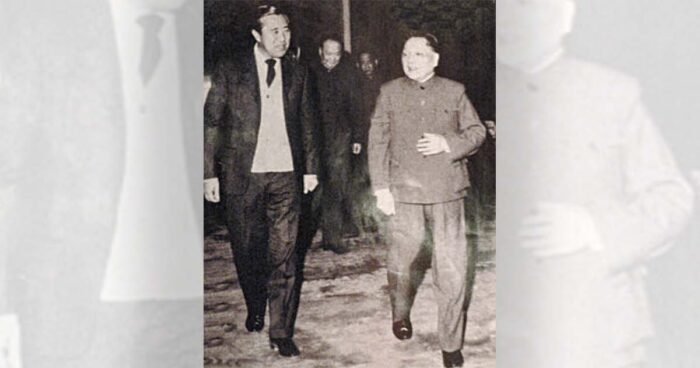Kasur Gyalo Thondup, one of the prime figures in modern Tibetan history and the second eldest brother of His Holiness the Dalai Lama, passed away today at his home in Kalimpong, India. He was 97 years old.
Born in Taktser, in eastern Tibet, the same village where His Holiness the Dalai Lama was also born, Thondup spent several years studying in Nanjing, China. In the wake of the Communist takeover of China in 1949 and eventually of Tibet, he became the point person to take up the Tibetan issue internationally. He was involved in many different initiatives over the next several decades that aimed at supporting His Holiness the Dalai Lama and the Tibetan people. These are detailed in his memoir The Noodle Maker of Kalimpong.
His outreach in the 1950s led to the CIA undertaking its covert program to assist the Tibetan resistance against Communist Chinese occupation of Tibet. He also coordinated with the Tibetan Government in Lhasa to take up the Tibetan issue at the United Nations that eventually led to the passing of the three resolutions by the General Assembly in 1959, 1961 and 1965.
He also had a direct role in the Tibetan government in exile, having handled foreign affairs in the 1960s and becoming the chairman of the Kashag (Cabinet) in the early 1990s. In between he established a base in Hong Kong, in addition to a residence in Kalimpong, India.
In the late 1970s, he was contacted by the Chinese Government to convey a message to His Holiness the Dalai Lama of their desire to talk. His subsequent meeting with Chinese leader Deng Xiaoping in 1979 began a series of contacts between Tibetans and the Chinese leadership. He conveyed Deng’s message to His Holiness the Dalai Lama that “except independence all other issues can be settled through discussions”. This led to several rounds of talks between envoys of His Holiness the Dalai Lama and the Chinese leadership as well as several fact-finding delegations from Dharamsala to different parts of Tibet. He thus became a personal emissary of His Holiness the Dalai Lama, undertaking several personal visits to China and Tibet.

Gyalo Thondup with Deng Xiaoping in 1979
When in 2008, a Chinese official had said that Deng had never given such an assurance, Thondup publicly clarified to the media in Dharamsala saying, “it was myself to whom the late paramount leader, Deng Xiaoping, said that “except independence all other issues can be settled through discussions” on 12 March 1979.”
When questioned about why he changed his approach in 1979 from leading a resistance movement to launching his initiative of engaging with the Chinese, Thondup said support from India and the United States would be insufficient to solve the Tibetan problem; real progress required talking with the Chinese.
Lodi Gyari, His Holiness the Dalai Lama’s Special Envoy, had worked closely with Thondup and has this to say about him in his memoir, “It is beyond dispute that Gyalo Thondup dedicated his entire life to advancing Tibet’s interests, seeking to work with any person, group, or government that might help, including the KMT, Communists, Americans, Indians, and even the Russians at one point, all because of his profound commitment to the cause.”
Explaining his reason for taking up the Tibetan issue, Thondup said in 2008. “My purpose is pleading the case of Tibet and hoping that the government of China will adopt a more reasonable approach and treat us equally.” He acknowledged that: “Yes, there has been no result [from the current round of dialogue since 2002], but even if there is no result we are not going to lose hope. Things are changing, the world is changing. Look at the recent election in America. Have you ever dreamed? China is changing, the world is changing. I’m quite optimistic.”
Presiding over a memorial prayer at the Tashi Lhunpo Monastery in Bylakuppe, His Holiness the Dalai Lama shared, “It is with deep sorrow that I share the passing of my elder brother, Gyalo Thondup. The primary purpose of the offerings made to the monks gathered here today for his memorial service is to honour his life and legacy. My brother worked with immense dedication and courage, and his determination was truly remarkable. Through these memorial offerings, we pray for his auspicious rebirth, specifically as a Tibetan, where he may continue to serve the cause of Tibet, as he so deeply desired. I too make this prayer on his behalf. His lifelong aspiration was to remain by His Holiness the Dalai Lama’s side, serving him for many lifetimes. I kindly request everyone’s support in fulfilling this profound prayer.”
His wife Diki Dolkar (Zhu Dan) and daughter Yangzom Doma pre-deceased him. He is survived by his sons Ngawang Tanpa Thondup, Khedroob Thondup and their families. In addition to His Holiness the Dalai Lama, his surviving siblings are Jetsun Pema and Tendzin Choegyal.